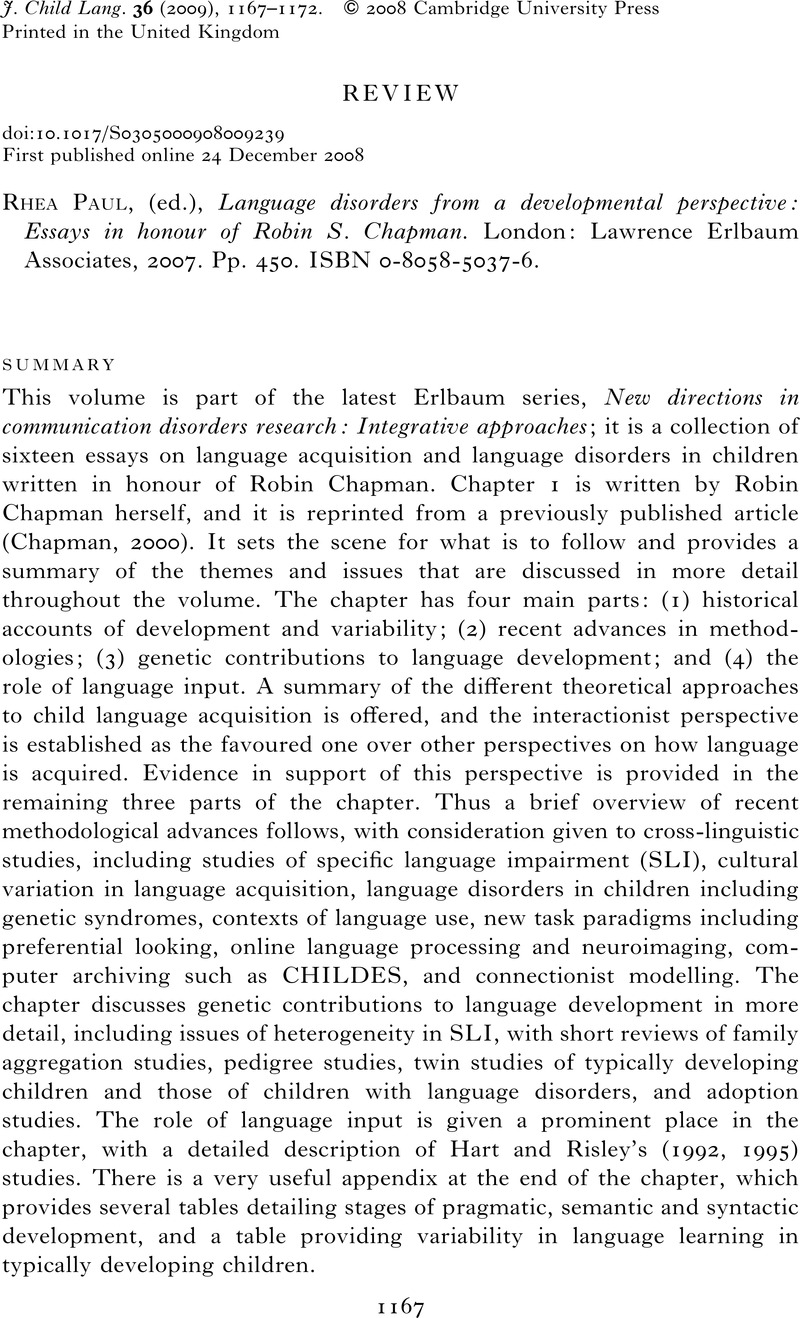No CrossRef data available.
Article contents
Rhea Paul (ed.), Language disorders from a developmental perspective: Essays in honour of Robin S. Chapman. London: Lawrence Erlbaum Associates, 2007. Pp. 450. ISBN 0-8058-5037-6.
Published online by Cambridge University Press: 24 December 2008
Abstract
An abstract is not available for this content so a preview has been provided. Please use the Get access link above for information on how to access this content.

- Type
- Reviews
- Information
- Copyright
- Copyright © 2008 Cambridge University Press
References
REFERENCES
Chapman, R. (2000). Children's language learning: An interactionist perspective. Journal of Child Psychology and Psychiatry and Allied Disciplines 41, 33–55.CrossRefGoogle ScholarPubMed
Hart, B. & Risley, T. (1992). American parenting of language learning children: Persisting differences in family–child interactions observed in natural home environments. Developmental Psychology 29, 1096–1105.CrossRefGoogle Scholar
Hart, B. & Risley, T. (1995). Meaningful differences in the everyday experience of young American children. Baltimore, MD: Paul H. Brookes.Google Scholar
Leonard, L. (1998). Children with specific language impairment. Cambridge, MA: MIT Press.Google ScholarPubMed
Miller, J. F. & Chapman, R. S. (1981). The relation between age and mean length of utterance in morphemes. Journal of Speech and Hearing Research 24, 154–61.CrossRefGoogle ScholarPubMed
Rescorla, L. (2000). Language and reading outcomes to age 9 in late-talking toddlers. Journal of Speech, Language and Hearing Research 35, 1290–302.Google Scholar
Rescorla, L. (2002). Do late-talking toddlers turn out to have reading difficulties a decade later? Annals of Dyslexia 50, 87–102.Google Scholar


